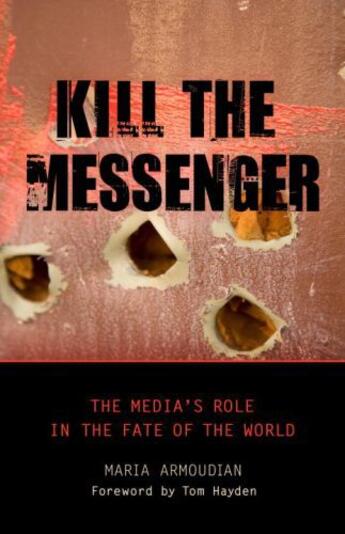-
Nombre de pages : (-)
-
Collection :
(-)
-
Genre :
(-)
-
Thème :
Non attribué
-
Prix littéraire(s) :
(-)
Résumé:
This wide-ranging, insightful book will make readers keenly aware of the media's power, while underscoring the role that we all play in fostering a media climate that cultivates a greater sense of humanity, cooperation, and fulfillment of human potential. In the spring of 1994, after decades of... Voir plus
This wide-ranging, insightful book will make readers keenly aware of the media's power, while underscoring the role that we all play in fostering a media climate that cultivates a greater sense of humanity, cooperation, and fulfillment of human potential. In the spring of 1994, after decades of intermarrying and living in relative harmony with each other, Rwandan Hutus, en masse, went on a murderous rampage against their Tutsi neighbors. By the end of just three months, nearly three-quarters of the entire Tutsi population had been exterminated. This swift, appalling genocide followed a relentless propaganda campaign broadcast from government-controlled radio, which for over three years had demonized Rwandan Tutsis. What role do the media have in creating the conditions for atrocities such as occurred in Rwanda? Conversely, can the media be used to preserve democracy and safeguard the human rights of all citizens in a diverse society? How will the media, now global in scope, affect the fate of the planet itself. The author explores these intriguing questions and more in this in-depth examination of the media's power to either help or harm. She begins by documenting how the media were used to spread a contagion of hate in three deadly conflicts: Rwanda, Nazi Germany, and the former Yugoslavia. She then turns to areas of the world where the media acted constructively--by aiding the peace process in Northern Ireland, rebuilding democracy in Chile, bridging ethnic divides in South Africa, improving the lot of women in Senegal, and boosting transparency and democratization in Mexico and Taiwan. Finally, she explains how the media interact with psychological and cultural forces to impact perceptions, fears, peer-pressure, "groupthink," and the creation of heroes and villains.
Donner votre avis














